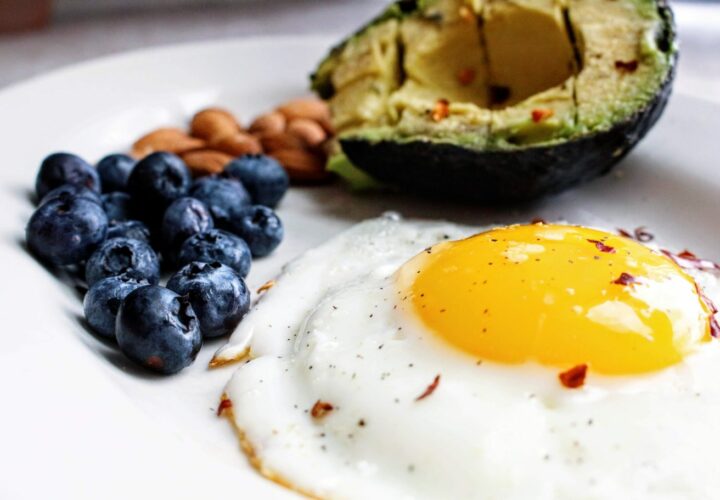What do we know about the ketogenic diet and Alzheimer's prevention? Wake Forest University Alzheimer's expert Dr. Laura Baker provides insight into an important study on diet and Alzheimer's risk.
What do we know about the ketogenic diet and Alzheimer’s prevention? Some studies have shown convincing evidence that what you eat really matters when it comes not only to brain health, but other areas that have been shown to affect risk of Alzheimer’s, like metabolic health.
After an Alzheimer’s study in Finland called the FINGER study concluded that a combination of diet, exercise and brain training made a positive impact on cognitive health, Being Patient spoke to Laura Baker, Ph.D., associate professor of gerontology and geriatric medicine at Wake Forest University about a similar study in the U.S. — the POINTER study, a lifestyle intervention study that was launched this year. We spoke to Baker about the effect of a ketogenic diet on Alzheimer’s risk, and how diet was measured in the POINTER study versus in the FINGER study.
A ketogenic diet is high-fat, no-carb and some protein. Ketogenic diets rely on providing an alternate fuel for the brain. Fat, rather than glucose, creates the brain’s energy source. That kind of diet produces ketones, which have been shown in some studies to be neuro-protective — or protective of brain health.
Being Patient: Tell me a little bit about the POINTER study and what you’re trying to achieve with it.
Laura Baker: We’re calling it U.S. POINTER, because this is a study that’s part of a global effort. FINGER was the original study. FINGER was completed in Finland using older adults—about 1200 people—and the results were published in 2014. The idea behind FINGER was that we have no medications that work, but we have some signal that various lifestyle interventions do move the needle; so, diet seems to make a difference. People who are on certain kinds of diets seem to do better and exercise seems to be an important ingredient. Managing your medical comorbidity seems to be an important ingredient. So we could continue to study each one individually for years.
Being Patient: Let’s start just with diet cause that comes up all the time. There’s ketogenic, there’s low-carb, there’s low-fat; what is the right diet? What’s the best diet for our brain?
Laura Baker: I think each person you talk to might give you a different opinion. The consensus that we are starting to narrow in on is that there are certain ingredients that we’re learning are important. So let’s just talk about ketogenic vs. a traditional healthy diet.
What’s interesting about ketogenic, and I think this is what makes it difficult to make a blanket statement, is ketogenic diet provides an alternative fuel for the brain. Alternative fuel may only be maximally effective at certain stages of the disease, so as a younger healthy person with no cognitive impairment, is ketogenic the best approach? We don’t know that. It may not be. But when your normal fuel supply is not efficiently and effectively being utilized by the brain, you’ve got to resort to alternative fuels. When the normal supply glucose is not being effectively utilized, this may link with stage-end disease. That brings us back to insulin resistance. As we get older, our bodies become more insulin resistant. All of us do. We become less efficient in utilizing the glucose that we consume.
Being Patient: And if it’s too much, that means you’re diabetic?
Laura Baker: Yes. It is a natural change with age for all us. Even those who exercise and eat well. With this process when your efficiency is changing over time in terms of your glucose utilization, this change is more so with disease at a faster rate. It becomes a time the brain may not be getting what it needs, because the core machinery is … let’s say it’s squeaky, it’s not working as fast—so the brain cells start to starve. Now, if you had another type of energy available that could be utilized much more efficiently, maybe it could slow down that starvation. But if you’re not in a dire state, ketogenic diet might not work for you.
“We are resilient. The brain
machinery is resilient. We were
made to weather the storm for
short periods of time. That’s why
we have survived for so long.”
Being Patient: How do you know what state you’re in and how do you know what type of diet is good for you?
Laura Baker: So, right now, the impact of a ketogenic diet on various stages, from MCI to Alzheimer’s disease, we just don’t know the answer. I would say within ten years from now we’ll know. But until then, there’s still many other more healthy diets relative to the standard American cuisine that need to be pushed. There is still a lot we can be doing as a culture to improve our health status by what we consume while we’re waiting for this day. If you consume a different kind of diet, and if the whole country would change their diet to a Mediterranean-like diet, in ten years, we would be a much healthier nation. So we don’t have to wait. We have so much work to do to make progress and the American diet, it is almost a tragedy for our health.
If people could get the message, “You need to watch what you put in your mouth,” and make the connection of what I put in my mouth affects what happens up in my brain.
Being Patient: If you think about it, it’s not brain science. We are what we eat. We’re seeing impacts with disease and bad diet. We’ve known that for years.
Laura Baker: Well, we are resilient. The brain machinery is resilient. We were made to weather the storm for short periods of time. That’s why we have survived for so long. If your diet really tanks in the holiday season, for example, we’re fine. But you need to come back out of that. Our bodies are made to make it through that period. The problem is that we don’t. Our standard diet, what we use in clinical trials as the unhealthy diet, is the standard American diet. We are victim to media. We are victim to sweets and carbohydrates and we are addicted. So when you are deprived of carbohydrates, you want them terribly and it’s this vicious cycle of what we’re being exposed to in terms of the commercials, the smells, fast food places. It’s addicting for folks and they have learned psychologically, ‘I need that, I’m so stressed, I need to have this to help me feel better today, because this was a difficult day for me.’ We have this whole psychology of what we need to soothe ourselves and it involves food. And because of that psychology, we have so much to do in the next ten years while we’re waiting for the ketogenic diet results to come out.
This interview has been edited for length and clarity.




Excellent interview. I am on a no grain, anti inflammatory diet and have been following many of the protocols recommended by Dr. Bredesen in his book The Alzheimer’s Cure. Lifestyle is critical for preventing this and other modern chronic diseases. My mom is in the last stages of Alzheimer’s
I practically eat nothing but grains and brown rice and organic fruit and vegetables.
I drink/consume goat dairy products and no cows milk which I find more digestible.
I am now taking large supplements of vitamin C. I shall increase my walking now,
Can you suggest anything else to beat the mild cognative disorder with which have been diagnosed?
Should I not be eating grains?
Thank you.
Keto diet may reduce Alzheimer’s risk by altering gut fungi
https://www.medicalnewstoday.com/articles/keto-diet-may-reduce-alzheimers-risk-by-altering-gut-fungi